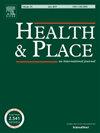Connecting to home in transitional accommodation: Exploring the perspectives of people with mental health issues in Hong Kong
IF 4.1
2区 医学
Q1 PUBLIC, ENVIRONMENTAL & OCCUPATIONAL HEALTH
引用次数: 0
Abstract
For people with mental health issues (MHIs), the experience of being at home is widely recognised as a universal aspiration. Yet, research on home in the mental health context has largely marginalised the role of transitional accommodation. This paper examines how residents construct the idea of home and how homelike qualities are enacted and sustained in transitional accommodation in Hong Kong, where such services remain the primary response to the (temporary) housing needs of people with MHIs. With the support of a panel of experts with lived experience of MHIs and transitional accommodation, we conducted in-depth interviews using both visual and verbal methods with 60 residents across 16 hostels. Findings revealed that external, relational, and socially connected qualities of home were more likely to be prioritized by residents. Participant accounts also reflected a broad continuum in how transitional accommodation is perceived in relation to home, ranging from full acceptance to firm rejection. Four themes, including safety risk coming from inside, spaces for extending family connection, dimensional interpretations of personal space, and living with a diminished sense of ownership, are discussed, highlighting the influence of personal, socio-cultural, and political contexts in the homemaking process. The paper underscores the need for more culturally and contextually sensitive research on at-homeness and offers insights into improving the design and delivery of transitional accommodation services.
在过渡居所与家相连:探讨香港有精神健康问题人士的观点
对于有精神健康问题的人来说,呆在家里的经历被广泛认为是一种普遍的愿望。然而,在心理健康背景下的家庭研究在很大程度上边缘化了过渡性住宿的作用。本文探讨香港居民如何建构家的概念,以及如何在过渡性住宿中制定和维持家的品质。在香港,过渡性住宿服务仍然是对残障人士(临时)住房需求的主要回应。在一组有住院部和过渡性住宿生活经验的专家的支持下,我们用视觉和口头的方法对16间宿舍的60名住客进行了深入的访谈。调查结果显示,居民更有可能优先考虑家庭的外部、关系和社会联系质量。参与者的叙述也反映了人们对过渡性住房的看法,从完全接受到坚决拒绝。讨论了四个主题,包括来自内部的安全风险,扩展家庭联系的空间,个人空间的维度解释,以及减少归属感的生活,强调了个人,社会文化和政治背景在家政过程中的影响。这篇论文强调了对居家生活进行更多文化和背景敏感研究的必要性,并为改善过渡性住宿服务的设计和提供提供了见解。
本文章由计算机程序翻译,如有差异,请以英文原文为准。
求助全文
约1分钟内获得全文
求助全文
来源期刊

Health & Place
PUBLIC, ENVIRONMENTAL & OCCUPATIONAL HEALTH-
CiteScore
7.70
自引率
6.20%
发文量
176
审稿时长
29 days
期刊介绍:
he journal is an interdisciplinary journal dedicated to the study of all aspects of health and health care in which place or location matters.
 求助内容:
求助内容: 应助结果提醒方式:
应助结果提醒方式:


